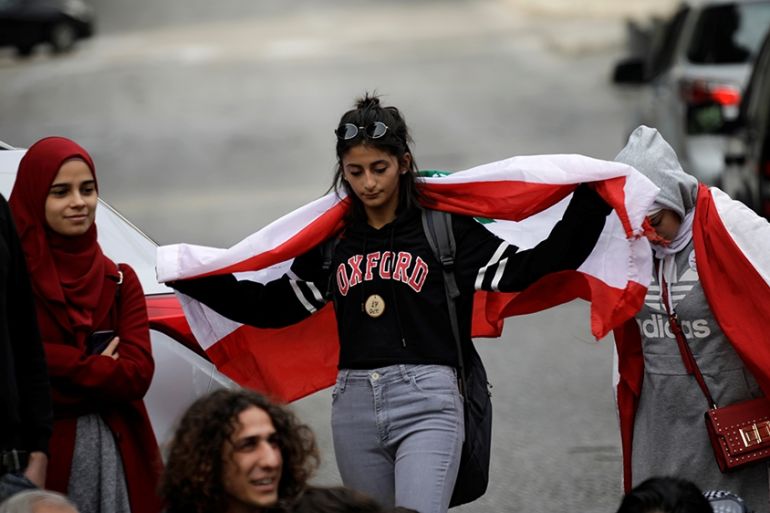Lebanon appeals for aid to pay for imports of essential goods
Caretaker government issues appeal to Saudi Arabia, France, Russia, Turkey, the United States, China and Egypt.

Lebanon is appealing to friendly states on Friday to help it import essential goods as it grapples with an acute economic crisis, while official sources also said France would convene an international meeting next week to mobilise support for the country.
Lebanon‘s economic crisis, the worst since its 1975-90 civil war, has spiralled into a financial crunch since the eruption of protests against the ruling elite in October, leading to hard currency shortages that have impeded imports.
Keep reading
list of 3 itemsLebanese banks to cap interest paid on deposits
Lebanon to start government formation talks as protests persist
The country has also been in a political crisis since Saad Hariri quit as prime minister more than five weeks ago, prompted by protests against ruling politicians over corruption.
Consensus emerged this week around businessman Samir Khatib as the new premier, and he is expected to be designated on Monday unless Lebanon’s volatile politics brings surprises before then.
A new government is seen as a crucial step for Lebanon to chart a way out of the crisis and appeal for the help of foreign governments waiting for the new administration to take shape.
Hariri, running a caretaker government, issued his appeal to Saudi Arabia, France, Russia, Turkey, the United States, China and Egypt, seeking help to finance imports of essential goods.
A statement said this was part of his efforts to address the liquidity shortage and to ensure “the continuity of food security and raw materials for production”.
Capital controls – which are being enforced by commercial banks but have not been formalised by the authorities – have led some importers to slash their orders as they have been unable to source dollars at the official rate or make transfers abroad.
The central bank has rationed dollars for wheat, fuel and medicine, but buyers of these must still source 15 percent of the dollars, raising costs because of a slump in the Lebanese pound.
The pound firmed slightly on Friday, with US dollars offered at 1,930 pounds compared to 1,980 on Thursday, but the currency was still 28 percent weaker than the official rate of 1,507.5 pounds per dollar, dealers said.
The crisis is rooted in state waste and corruption overseen by leaders using government resources for their own gain. Lebanon is one of the world’s most heavily indebted states.
The country won international pledges of more than $11bn in project financing last year on the condition that reforms would be enacted.
France aims to mobilise international support at its planned upcomiing conference, which a European official and a Lebanese official said would take place in Paris on December 11.
The meeting will gather representatives of the international support group that includes the five permanent members of the United Nations Security Council. Saudi Arabia and the United Arab Emirates were also expected to be invited, the Lebanese official said.